
Welcome to your definitive guide to finding the best laptop for playing The Day Before. As an avid player of this MMO survival game set in a deadly, post-pandemic America, I've spent countless hours navigating the deserted streets, scavenging resources, and battling against infected and survivors alike, all the while on the hunt for the optimal gaming laptop that can handle this visually stunning and hardware-demanding game.
Playing The Day Before requires more than just a basic laptop. If you're aiming for smooth gameplay, sharp graphics, and quick response times, you'll need a machine that excels in all these aspects. This guide is based on my comprehensive review of an extensive laptop spreadsheet containing recent releases, where I compared specs, analyzed both professional and user-generated reviews, and handpicked the top-performing laptops that meet the specific requirements of The Day Before players.
I've been through the gruesome battles in the ruins of old cities, survived the harsh winters, and experienced the thrill of exploring the vast, detailed world of The Day Before. I understand how crucial it is to have a laptop that doesn't stutter during intense PvP fights, or when you're simply enjoying the game's beautiful, post-apocalyptic scenery. This guide aims to help you find the best laptop for The Day Before that will not only enhance your gaming experience but also fit within your budget. Whether you're a casual player or someone who spends hours uncovering the secrets of the game's lore on the community forums and The Day Before's subreddit, this guide will have you covered.
Powerful Processing: Unleashing Laptop Performance
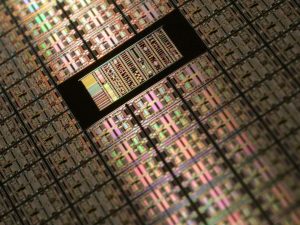
When it comes to choosing the right processor for your audio workstation, the landscape of laptop processors has seen significant advancements recently. With Apple introducing their ARM-based M1, M2, M2 Pro, and M2 Max chips, AMD capturing a notable portion of the market with its 6th and 7th-generation Ryzen CPUs, and Intel rolling out its 12th and 13th-generation Core processors, there are plenty of options to consider. Let's dive into how these choices can impact your audio workflow.
What's new in the laptop processor market
The latest offerings from Apple, AMD, and Intel bring diverse performance and efficiency improvements to the table. While Apple's silicon excels in single-core performance and battery life, AMD's Ryzen models stand out for their balance of power and battery longevity. On the other hand, Intel's latest processors offer solid value for those not requiring bleeding-edge performance.
Why a fast CPU might not be necessary for your audio workstation (but can still be helpful)
In the realm of audio work, a fast processor isn't always a must-have. However, having ample processing power can enhance tasks like rendering and encoding, especially when dealing with large audio projects or resource-intensive plugins.
Considering multi-core processors for running multiple DAWs simultaneously
If your workflow involves running multiple Digital Audio Workstations (DAWs) concurrently or handling complex projects that demand multitasking capabilities, opting for a multi-core processor can significantly boost your efficiency.
Determining the best CPUs for audio workstations
When evaluating processors for audio tasks, tools like Cinebench R20 can serve as reliable performance indicators. For a more comprehensive assessment, tools like PassMark or 3DMark can provide insights into overall performance, though they may not offer as precise a measure as testing on a dedicated music production setup.
Table of recommended processors by budget
Here are some processor recommendations tailored to different budget ranges for your audio workstation:
| Budget Level | Recommended Processor |
|---|---|
| Minimum | i5-11320H |
| Recommended | AMD Ryzen 5 5600U |
| High-end | i5-12450H |
By aligning your budget with these processor choices, you can strike a balance between performance and cost-effectiveness for your audio production needs.
Power Up Your Graphics: Finding the Perfect GPU
How do I rank GPUs by performance?
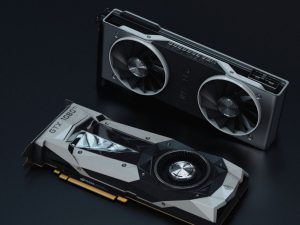
When comparing graphics chips, I typically use 3DMark scores to compare different GPUs side by side. However, it's important to note that these scores don't tell the whole story. Laptop manufacturers often underclock the GPU to improve battery life and reduce heat output, which can lead to thermal throttling. Therefore, it's important to look for in-depth reviews that include gaming benchmarks, which you can find on platforms like YouTube and Twitch.
Recommended GPUs for different price brackets
If you're looking for a laptop graphics card that strikes a balance between performance and price, here are some recommendations based on different price brackets:
| Price Range | Recommended GPU |
|---|---|
| Minimum | GeForce RTX 3050 |
| Recommended | GeForce RTX 3060 |
| High-end | GeForce RTX 2080 SUPER |
These GPUs offer varying levels of performance, with the high-end option providing top-tier capabilities for demanding tasks like gaming or GPU-intensive software development.
In conclusion, choosing the right laptop graphics card for The Day Before depends on your specific needs and budget. While a dedicated GPU is not necessary for most developers, it can be beneficial for certain tasks. Consider your requirements, do some research, and find the best GPU that meets your needs without breaking the bank.
Unleash the Power: RAM Requirements Demystified
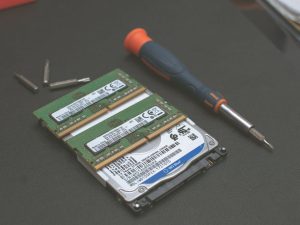
Traditionally, mid-range laptops come equipped with 16 GB of RAM, while high-end laptops boast 32 GB or more. This is because most modern games and applications require a substantial amount of memory to run smoothly. However, it's essential to consider your specific needs and budget when deciding on the right amount of RAM for your laptop.
If you're on a tight budget, 8 GB of RAM can be sufficient for running most games. However, if you're looking for a long-term investment and want to future-proof your laptop, 16 GB would be ideal. This will provide you with enough headroom for multitasking, running demanding applications, and keeping up with future software updates.
It's worth noting that laptops often have limited upgradability options, so it's best to get as much RAM as possible from the start. Upgrading RAM in a laptop can be challenging or even impossible in some cases, so it's wise to plan for the future and invest in more memory than you currently need..
To summarize, here are our recommendations for different budgets:
| Budget | Recommended RAM |
|---|---|
| Minimum | 16 GB |
| Recommended | 32 GB |
| High-end | 64 GB |
These recommendations should provide a good balance between performance and cost-effectiveness. Remember, having more RAM than you currently need can future-proof your laptop and ensure smooth performance for years to come.
In conclusion, when deciding on the right laptop RAM for The Day Before and other demanding tasks, it's crucial to consider your specific requirements, budget, and the limitations of laptop upgradability. By following our recommendations and understanding the current state of RAM technology, you can make an informed decision that meets your needs while providing a solid foundation for an exceptional laptop experience.
4 Best Laptops for The Day Before
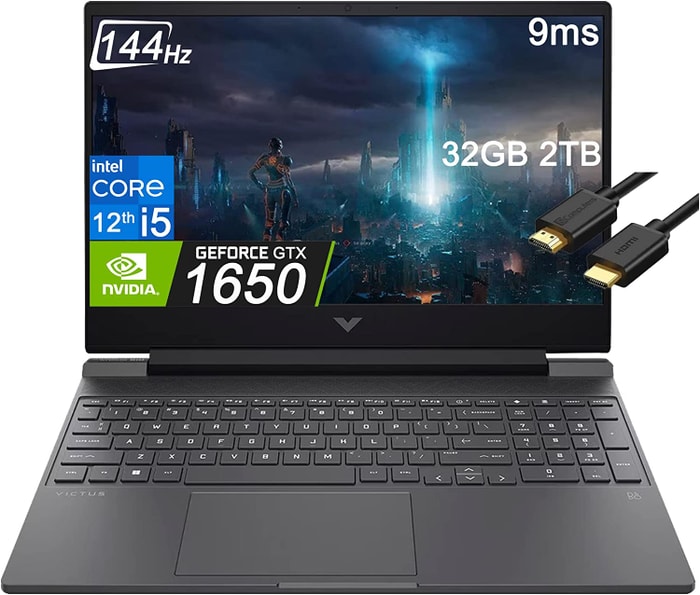 $880
$8801.HP Victus 15
HP Victus 15: A budget-friendly gaming laptop with decent performance, marred by battery life and design limitations.- Excellent price
- Good gaming performance
- Versatile as a work laptop
- Solid array of ports
- Bad battery life
- Plain design
- Weak GPU performance
- Non-RGB keyboard and quirky navigation controls
Summary
The HP Victus 15 offers budget-friendly gaming performance and respectable specs, making it a solid choice for gamers on a budget. While its design is simple and the battery life leaves something to be desired, its strong performance, sharp display, and versatile port selection make it a compelling option for those seeking gaming capabilities without breaking the bank.
Alternatives
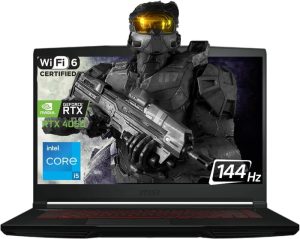 $970
$970MSI Thin GF63
- Affordable price
- Powerful Intel Core i5 CPU
- Limited gaming performance
- Dull display
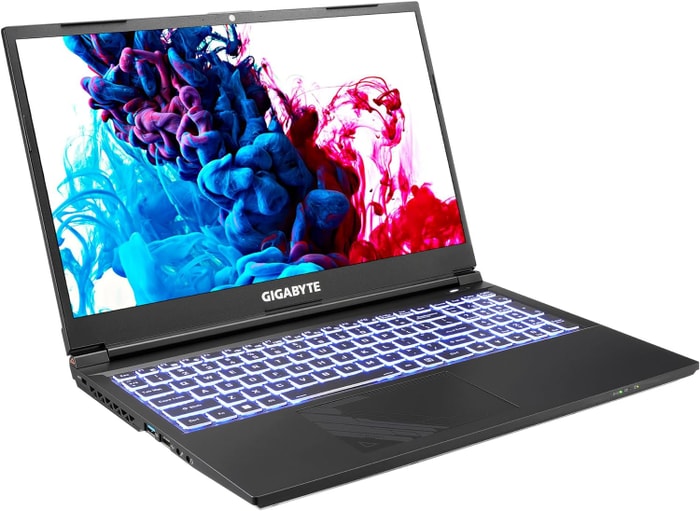 $1,270
$1,2702.GIGABYTE G5 KF5
Solid design and performance make the GIGABYTE G5 KF5 a top choice for budget-friendly gaming.- Great gaming performance
- Nice-looking screen
- Solid chassis
- Easy to upgrade storage
- Loud under load
- Larger SSD upgrade is a must
- Would prefer more P-cores
Summary
The GIGABYTE G5 KF5 impresses with its solid design, impressive gaming performance, and easy upgradeability at an affordable price point. It offers a great gaming experience with a nice-looking screen and a sturdy chassis. However, it tends to get loud under heavy load, requires a larger SSD upgrade, and some users may prefer more P-cores for enhanced performance.
Reviews
Alternatives
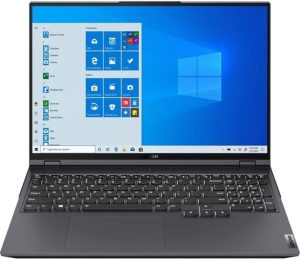 $1,300
$1,300Lenovo Legion 5i Pro 16
- Stylish and sleek form factor
- Gorgeous display
- Webcam quality is poor
- Lack of biometrics
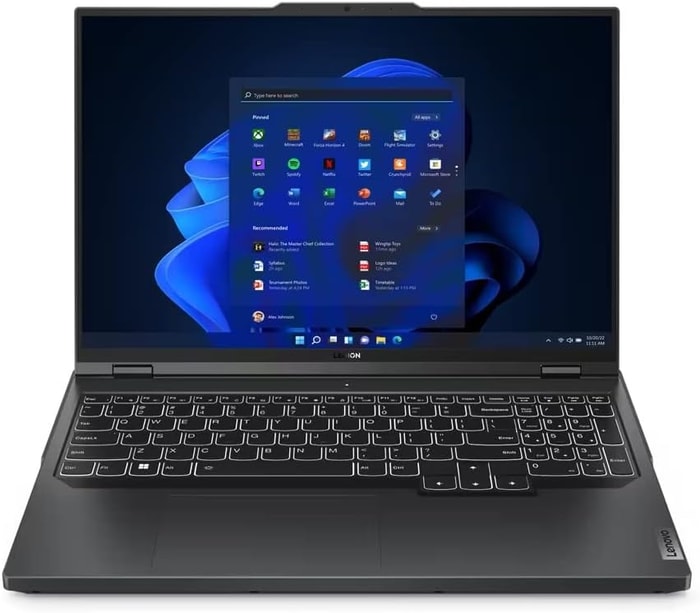 $2,630
$2,6303.Lenovo Legion Pro 5
Lenovo Legion Pro 5: A Solid Mid-Tier Performer with Some Drawbacks- Good build quality and design
- Good screen and IO
- Competitively priced
- No Thunderbolt or biometrics
- Hotspots during gaming
- Poor speakers
- So-so battery life
Summary
The Lenovo Legion Pro 5 is a solid mid-tier laptop that offers good value for its price. It boasts a well-built design, a good screen, and a competent CPU with various GPU options. However, potential buyers should be aware of its hotspots during sustained loads, limited battery life, and subpar speakers.
Reviews
Alternatives
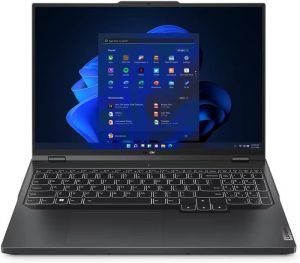 $2,840
$2,840Lenovo Legion Pro 5
- Strong performance for the price
- Quality build and port selection
- Display quality and battery life are just decent
- Bulky and heavy
 $3,390
$3,3904.Lenovo Legion Pro 7i 16
Lenovo Legion Pro 7i 16: An alluring gaming laptop with potent performance and a reasonable price.- Strong overall performance
- Big, bright, and fast display
- Per-key RGB lighting
- Some flex to keyboard deck
- Poor battery life
Summary
The Lenovo Legion Pro 7i 16 impresses with its potent i9-13900HX processor and RTX 4090 GPU, all neatly packaged in an understated design that conceals its true gaming nature. With strong overall performance and a spacious, fast display, it offers great value for gamers looking for a mid-range powerhouse. However, the laptop does show some keyboard deck flex and struggles with poor battery life.
Alternatives
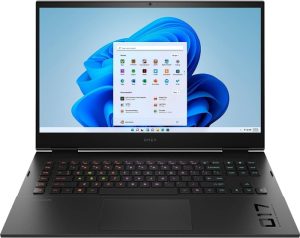 $4,290
$4,290HP Omen 17
- QHD display with 165 Hz
- Expandable working memory
- Slightly below-average performance for an RTX 4080
- High noise level
Table of the Best Laptops for The Day Before
| Laptop | Price (approx) |
| HP Victus 15 | |
| GIGABYTE G5 KF5 | |
| Lenovo Legion Pro 5 | |
| Lenovo Legion Pro 7i 16 |

